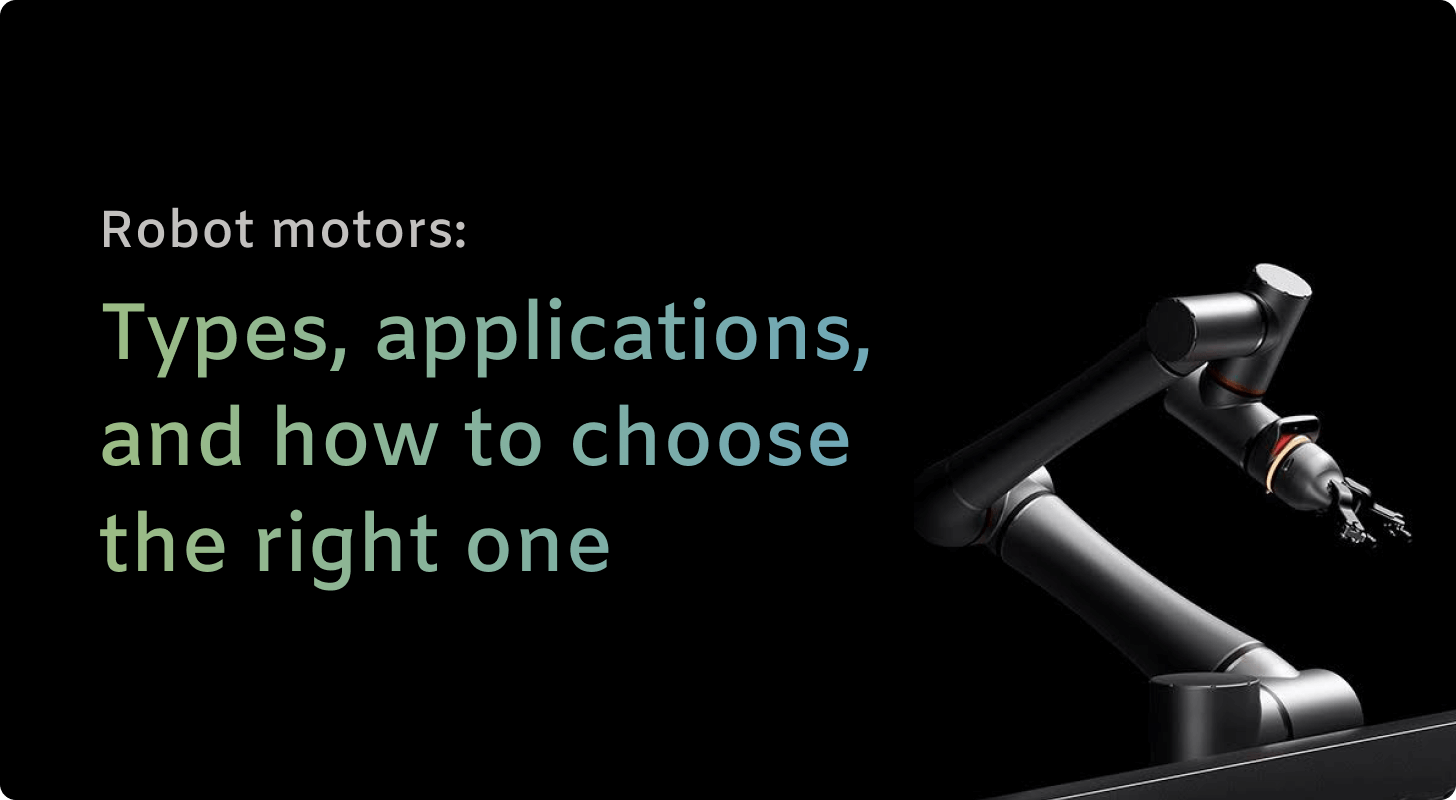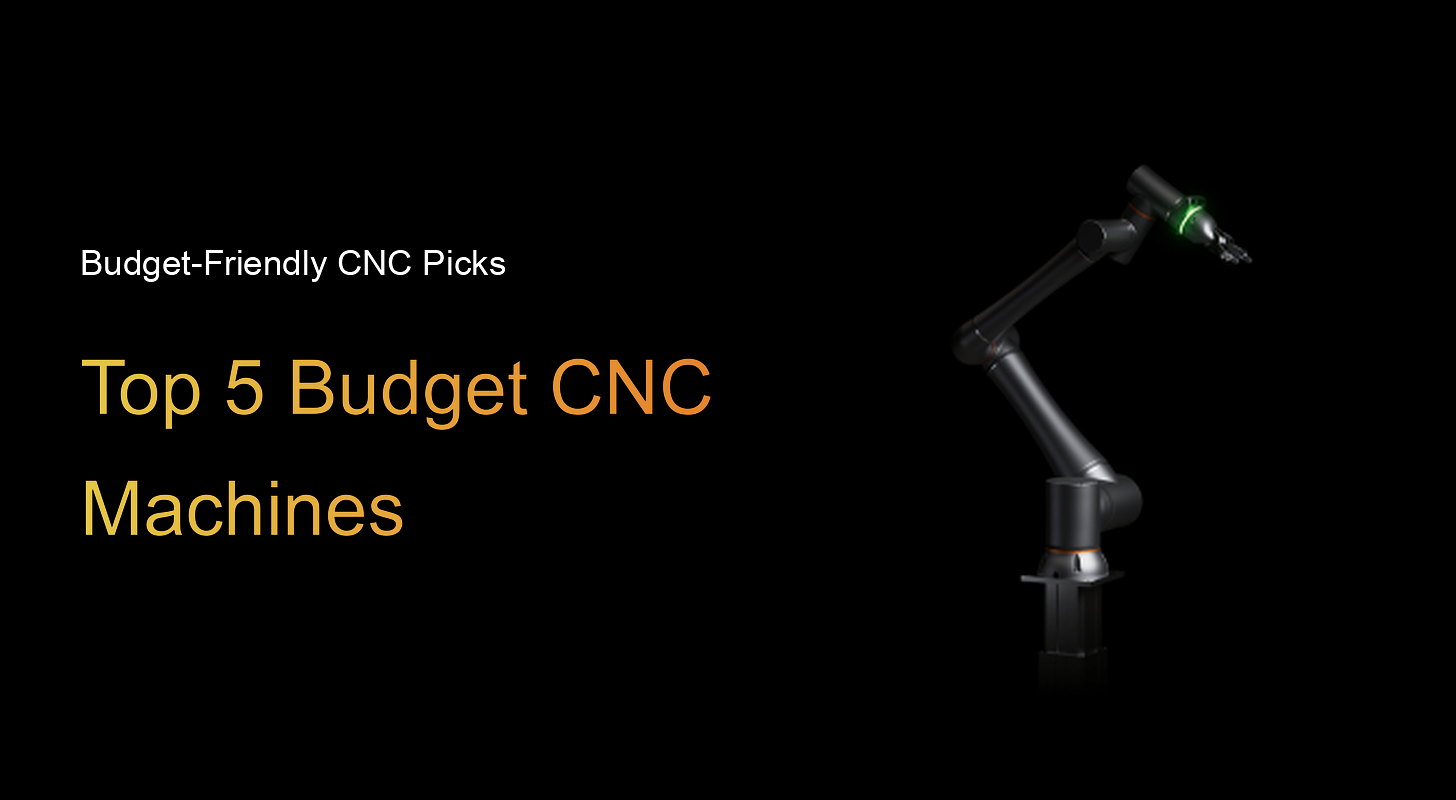You’re ready to go all in on automation, but there’s a catch — with so many companies out there, how do you know who’s got the goods?
What you need is the inside scoop about the best companies in the game. In this article, we’ll walk you through the top 10 industrial robot manufacturers dominating the global market.
We’ll go over:
- The basics of industrial robot manufacturers
- What to look for in a great robot manufacturer
- Our list of the top 10 industrial robot manufacturers
Let’s dive right in!
What is an industrial robot manufacturer?
An industrial robot manufacturer is a company that designs, develops, and sells robotic arms and systems for use in manufacturing environments.
In essence, they’re responsible for creating the robots we see assembling our cars, packaging our food, and making the products we use in our daily lives.
Here’s what they do:
- Robot manufacturing companies design the hardware and software of robotics products. This includes the robotic arms, grippers, end effectors, and controllers.
- They also develop mechanical and electrical systems that give robots functionality and performance specs.
- An industrial robot manufacturer also develops software that allows robots to operate on their own. This is true for teaching pendant robots, programmable robots, and even robots with no-code interfaces.
- These industrial robots are designed to perform repetitive or dangerous jobs. They excel at high-performance with extremely high precision and reliability in industrial environments.
- Robots can handle a wide variety of jobs, and some can be very flexible. Some of the main tasks industrial robots perform include welding, assembly, material handling, packaging, CNC machine tending, pick and place, palletizing, and inspection.
- An industrial robot manufacturer makes sure their products meet industry standards. This means always staying on top of guidelines for safety, reliability, and compatibility with other industrial equipment.
- A great manufacturer will also be there for you when you need them. This entails providing installation, maintenance, repair, and technical support services to their customers throughout the lifecycle of the robots.
What to look for in an industrial robot manufacturer
The market is getting overcrowded, and it’s no surprise that many industrial robot manufacturers are claiming the top dog title.
Here’s what you need to know to make sure you’ve got a winner on your hands:
- Do they have offices or repair centers near you? If something goes wrong, you'll want support nearby. Some companies may be more regional, while others may have an extended — even global — network.
- What types of robots do they make? Some companies specialize in Articulated robots, while others focus on SCARA, Delta, or Cartesian robots. Choose a manufacturer that offers the kinds of robots you need for your applications.
- Do they offer support and maintenance? Look for companies that offer technical support, training, and service contracts to keep your robots up and running. And yes, spare parts and repair services are a must — even the best bots break down.
- Do they offer accessories? We’re not talking Prada handbags; many robot makers offer end-effectors, conveyors, machine vision systems, and other accessories that integrate with their robots. See what's available to create an automated work cell.
- Do they even do what you need? Check that the company has experience in your industry and the ability to handle the scale of your operations. If you have an unusual application, make sure they can match it.
- Do they have a great portfolio? Dealing with a manufacturer who has mostly worked with much larger or smaller clients may bring unexpected challenges, so compare yourself to their existing client list to gauge fit.
Our top 10 industrial robot manufacturers
Nowadays, the industrial robot manufacturer market has opened up big time, and quite a few noteworthy names have popped up.
The "Big 4" — ABB, FANUC, KUKA, and Yaskawa — make up about 57% of all industrial robots sold worldwide.
But today, other robot manufacturing companies are making it clear that taking the top spot is not just about size.
Let’s get started:
Standard Bots
Standard Bots, headquartered in Glen Cove, New York, emerged in 2017 with a mission to democratize robotics.
Their flagship product, RO1, tackles this aim by being a user-friendly and cost-effective six-axis collaborative robot arm with AI and a whopping payload of 18 kg.
This "plug-and-play" collaborative robot (or cobot) requires no programming and minimal configuration due to its intuitive software (comparable to GPT-4), making it ideal for manufacturers seeking to automate tasks like loading, unloading, pick and place, and CNC machine tending.
Standard Bots prides itself on making accessibility a priority, bridging the gap for small and medium businesses with limited robotics experience who want to enter the game in style.
ABB
Based in Zurich, Switzerland, ABB is one of the world’s most well-known robotics companies.
They’re known for their large robotic arms used in heavy-duty applications like welding, painting, and assembly.
ABB also makes smaller cobots that can work directly with humans.
Their flagship model is the IRB 6700, a powerful six-axis robot widely used in the automotive industry.
FANUC
If you’ve ever seen the bright yellow robots in factories, there’s a good chance FANUC made them.
Headquartered in Japan, FANUC is the world’s largest maker of industrial robots, especially for the automotive industry. Their robots are reliable, low-maintenance, and designed for high performance and precision.
Their most iconic model is the M-20iA, a versatile six-axis robot known for its speed and accuracy.
KUKA
A German company, KUKA is a leader in robotic automation with over 100,000 industrial robots installed worldwide.
They’re known for their robotic arms for arc welding, spot welding, and other assembly line tasks. KUKA also makes humanoid robots and autonomous mobile robots for logistics and transportation.
Their most recognizable model is the KR QUANTEC, a six-axis robot widely used in automotive manufacturing and material handling.
Yaskawa
Another huge player from Japan, Yaskawa makes high-grade industrial robots for manufacturing, including arc welding robots, spot welding robots, and painting robots.
Their robots are compact, energy-efficient, and excellent for a range of industrial automation applications.
Their most popular model is the Motoman GP series, a family of six-axis robots known for their versatility and payload capacity.
Mitsubishi Electric
Mitsubishi Electric, also based in Japan (surprise, surprise), produces industrial robots for assembly, welding, sealing, painting, and other tasks.
Their robots are durable, fast, and high-performance. Mitsubishi also makes extremely safe and reliable cobots.
Their most well-known model is the MELFA RV series, a family of 6-axis robots offering precision and speed for various applications.
Stäubli
A Swiss giant, Stäubli is a specialist in industrial robotics, especially for precise and complex applications.
They make four- and six-axis robotic arms for welding, painting, machining, and other processes that require high speed and accuracy. Their robots are reliable and long-lasting.
Their most well-known model is the TM series, a family of cobots known for their user-friendly design and safety features.
Omron
A pioneer in automation, Omron is a Californian company that makes industrial robots, especially for assembly and material handling.
Their robots and cobots are high-speed, compact, and suitable for a wide range of applications.
Omron also produces autonomous mobile robots to transport materials in factories and warehouses. Their most widely recognized model is the Omron Viper series, a family of collaborative robots known for their user-friendly design and safety features.
Nachi
Nachi, a Japanese company founded in 1928, is a global leader in industrial robotics and automation.
They offer a comprehensive range of industrial robots, including SCARA robots, articulated robots, and palletizing robots. Nachi robots are known for their reliability, precision, and versatility, serving various industries such as automotive, electronics, and food processing.
Their MZ series of articulated robots is particularly popular for assembly applications.
Denso
Denso, headquartered in Japan, is a major player in the automotive industry and a leading manufacturer of industrial robots. They specialize in small industrial robots designed for high-speed, precise assembly tasks. Denso robots are renowned for their compact size, flexibility, and ease of integration into existing production lines.
Their VS series of SCARA robots is widely used in electronics manufacturing for its above-average speed and accuracy in pick and place operations.
FAQs about industrial robot manufacturing companies
Where are most industrial robot companies located?
The largest industrial robot producers are typically based in Asia, Europe, and North America. Big names like Standard Bots, ABB, and Yaskawa are headquartered in the US, Switzerland, and Japan, respectively. Many also have production facilities and offices in China, the United States, and Germany. These locations often determine the industries and regions the companies primarily serve.
What types of robots do they make?
Most major manufacturers produce a range of robot designs for various applications. This includes Articulated robots, SCARA robots, delta robots, cartesian robots, and collaborative robots (or cobots). The specific types they focus on depend on their key customers and industries. For example, FANUC and Yaskawa are well known for their articulated robots used in the automotive industry. Standard Robots specializes in lightweight, flexible cobots for small assembly and other applications.
What additional equipment and software do they offer?
In addition to robots themselves, many industrial robot producers also provide accessories. These go from end-effectors or end-of-arm tooling (EOAT) to vision systems, conveyors, and a range of automation equipment. They frequently offer software to program and control the robots, as well as simulation tools to optimize robot system design. Some of the largest companies have entire ecosystems of products to support robotic automation in manufacturing.
How much do their robots and services cost?
The costs can vary significantly based on the robot type, size, speed, accuracy, and additional features. Entry-level articulated robots typically start around $20,000 to $50,000. High-speed, high-precision Delta robots and SCARA robots can range from $50,000 up to $200,000 or more for large models. Annual service and support contracts are often available for an additional fee. Cobots tend to be on the lower end of the price spectrum, from $2,000 to $50,000.
Summing up
That’s all there is to know about the top 10 industrial robot manufacturers in 2024.
When it comes to picking the right bot for your needs, there are no better choices globally.
However, the robotics industry continues to evolve rapidly, so check for the latest models and capabilities before making a purchase.
Next steps
Looking for a robotic employee without a prohibitive price tag? RO1 by Standard Bots is the solution for you. This versatile six-axis robot arm is designed to elevate businesses of any scale, big or small.
Pocket-friendly automation: Harness cutting-edge robotics technology at a surprisingly affordable price, half the cost of comparable models.
Turbocharge your productivity: RO1's impressive 18 kg payload capacity and pinpoint accuracy means faster, more precise work, taking your output to the next level.
Smart and user-friendly: RO1 is no ordinary robot. It has advanced AI that learns and adapts to your specific tasks, just like GPT-4. Plus, its no-code interface makes it easy to operate, even without technical expertise.
Safety comes first: RO1's built-in smart sensors and cameras ensure it works seamlessly alongside your team, keeping everyone safe.
We're thrilled to offer a risk-free, 30-day trial. Talk to our solutions team and experience firsthand how RO1 can level up your shop floor.
brighter future
Join thousands of creators
receiving our weekly articles.










